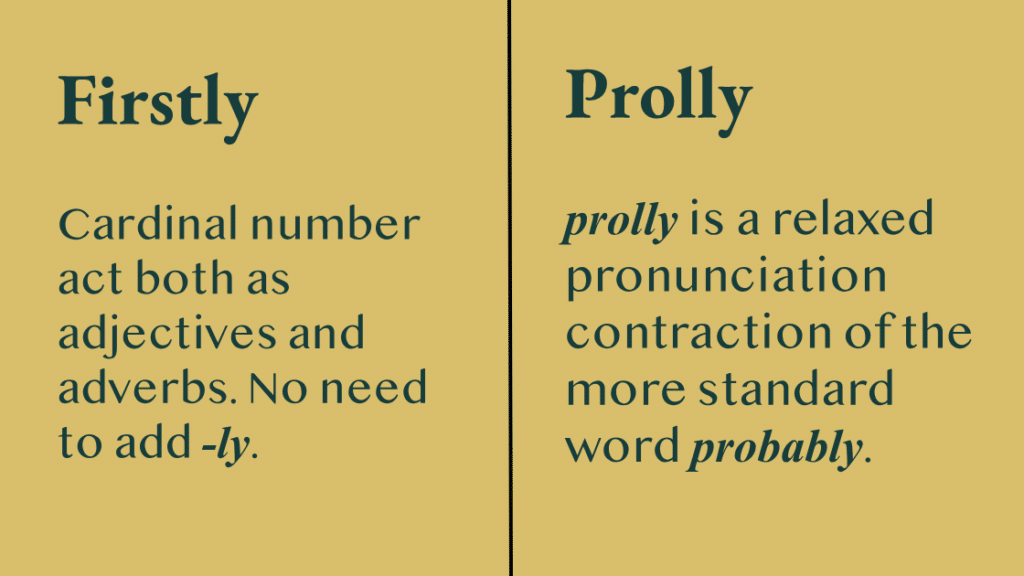Ever wonder if all the words people use are words that actually exist? By exist we mean they are recognized and included in English dictionaries. Well, some of the words that people confidently use on a day-to-day basis do not exist. Some say that the use of these words highlights a crucial language feature (i.e. change), while other language snobs disagree and scoff when they hear someone use them. Let’s find these words out.
1. Irregardless.
This word has long been used in place of regardless. Adding the irr- will only reverse the meaning. Merriam-Webster comments that ‘there is no such word’. It’s a word that has been wandering around since the 1900s and is still far from being widely accepted.
2. Firstly
secondly, thirdly…ordinal numbers act as both adjectives and adverbs. Why would people take the unnecessary step to add an –ly? They are only being redundant. Although it is widely used, grammarians consider the usage of firstly inferior to that of first. But who are the grammarians to judge? Language belongs to the people.
3. Prolly
I know you’re wondering if this is a word you’ve heard before. Yes, you prolly have. As you can guess, prolly is a relaxed pronunciation contraction of the more standard word probably. It goes back to the 1940s and is mostly reserved for informal contexts.
4. Literally
Literally has been literally stripped of its meaning lately that its literal and primary meaning has now been secondary and lost ground to new sense virtually. The Oxford English Dictionary has redefined literally to say it can be “used for emphasis rather than being actually true, such as, ‘We were literally killing ourselves laughing.‘
5. Snuck
No English verb that ends in the –eek sound has a past tense ending in –uck. It’s a mystery how people stuck with snuck as the past of the sneak since the 1800s. “Snuck has occasionally been considered nonstandard, but it is so widely used by professional writers and educated speakers that it can no longer be so regarded,” comments Random house dictionary.
6. Madded
Word snobs don’t like it, but the adjective mad has been verbed by some people, and this has madded a lot of people. Even autocorrect is giving me red earful as I’m using the word. Whether you like it or not, mad is a verb and it’s embraced by Merriam-Webster as in “Her endless excuses for not doing the work madded her overburdened coworkers.”
7. Nother
This is a whole ‘nother word that circulates around that grammar snobs are not so happy with. Believe me, this word is proudly used a lot in place of other. It is not the creation of digital media and goes as far back to the 14th century.
8. Conversate
This is an actual word that’s been around for more than 200 years. People use it to mean converse or ‘to have a casual talk about something’ as in “We conversated about the weekend plans” or “We conversated about how conversate is actually a word.”







